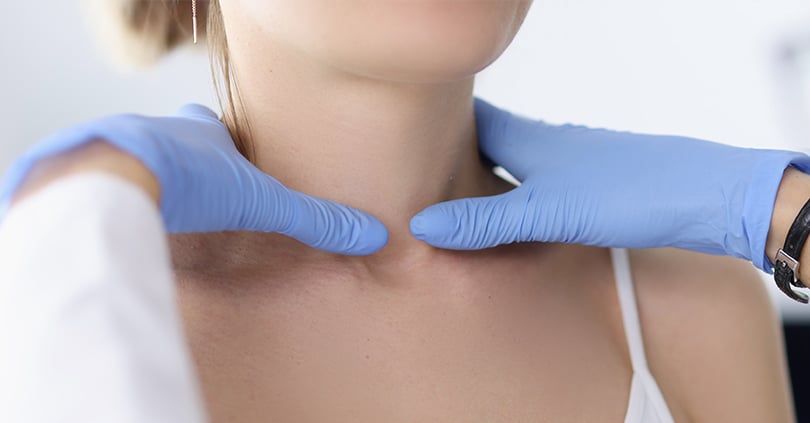- Rhinoplasty
- Sinusitis Treatment
- Revision Rhinoplasty
- Bone Curvature (Septum Deviation)
- Septum Perforation Treatment
- Nasal Flesh (Concha Hypertrophy)
- Nasal Congestion
- Hearing Loss
- Cochlear Implant
- Hearing Loss in Children
- Tympanoplasty
- Vertigo
- Tinnitus
- Middle Ear Microsurgery
- Otosclerosis
- Ear Tube
- Larynx Cancer
- Trachea Diseases, Stenosis
- Oral Cancer
- Cancer of the Pharynx
- Salivary Gland Diseases, Tumours
- Thyroid Surgery
- Neck Masses

Contents
ToggleThyroid Diseases and Surgical Intervention
The thyroid gland is a butterfly-shaped organ located at the back of the neck. This gland plays a role in regulating the body's metabolism and secreting important hormones. However, diseases occurring in the thyroid gland can lead to serious health problems. Especially thyroid nodules can cause problems by preventing the regular secretion of thyroid hormones. These nodules can be surgically removed and the healthy functioning of the thyroid gland can be restored.
Thyroid nodules can be benign or malignant. Various tests and examinations are performed by doctors to determine whether the nodules are benign or malignant. Benign nodules usually do not require surgery, but a biopsy procedure should be performed to determine whether the nodules are benign or malignant.
Thyroid surgery is determined depending on the type and severity of the nodules. A biopsy is performed to determine whether the nodules are benign or malignant. A sample is taken from the nodule using a thin needle and the nature of the nodule is determined as a result of the analysis. If the biopsy shows that the tumour is malignant, surgery may be necessary. Benign tumours can usually be managed with medication or follow-up.
Patients should be informed about the operation in detail before thyroid surgery. This includes information about postoperative complications, the healing process and possible problems. In addition, since the experience of the surgeon who will perform the surgery greatly affects the results, patients should learn about their doctor. Since thyroid surgery is close to the vocal cords, the surgical procedure must be performed very carefully and meticulously. Patients should make a careful choice about the hospital and doctor who will perform the surgery. Thyroid surgeries are performed with great care to minimise the risk of complications.
The duration of thyroid surgery usually depends on the general anaesthetic and the condition of the nodules. On average, operations last two to two and a half hours. After surgery, patients are kept under observation in a recovery room for one or two hours. The length of hospital stay can vary depending on the size of the operation, the patient's condition and the individual recovery rate, but usually lasts one or two days. The recovery process is completed within two to three weeks, depending on the patient's personal health status, and patients can return to their daily activities.
There is a risk of recurrence of thyroid nodules after surgery, but this risk is reduced to less than 1% with the right practices. How the surgery is performed and the experience of the doctor are important factors affecting the likelihood of recurrence of the disease. Therefore, the choice of doctor and the conditions under which the surgery is performed can greatly affect the recovery process of patients. Proper evaluation of the nodules before surgery and selection of the appropriate treatment method helps patients to recover in a healthy way.
